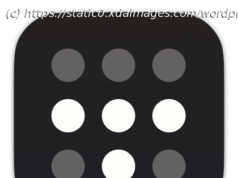Firefox 58 for Windows, macOS and Linux – the newest version of Firefox Quantum – boosts page load speeds by changing how the browser handles JavaScript.
Mozilla last week released Firefox 58 for Windows, macOS and Linux, building on the break-from-the-past Quantum edition of November by boosting page load speeds with changes to how the browser handles JavaScript.
Firefox, which can be downloaded from here, updates in the background, so most users need only relaunch the browser to get the latest version. To manually update, click the help icon – the question mark within a circle — after pulling up the menu under the three horizontal bars at the upper right. Choose “About Firefox.” The ensuing page shows that the browser is either up to date or details the updating process.
Mozilla usually updates Firefox every six to eight weeks, although the interval tends to lengthen around the end of each year; the last time it upgraded the browser, to version 57, aka “Quantum,” was Nov. 14, or 10 weeks ago.
Firefox 58 continued Quantum’s theme of 2017 – a need for speed – with changes to the browser’s storage and retrieval of JavaScript code. Dubbed “JavaScript Startup Bytecode Cache” (JSBC), the enhancements trade memory for faster page load times.
“The JSBC aims at improving the startup of web pages by saving the bytecode of used [JavaScript] functions in the network cache,” Nicolas Pierron, a compiler engineer at Mozilla, wrote in a December post to a company blog. To reach a reasonable balance – one that increases speed with the best return from the additional memory used by the cache – JSBC only kicks into gear at the fourth visit to a website. On sites that frequently load JavaScript, JSBC cut load times by as much as 12% (on Facebook), although most test results, said Pierron, were in single digits (Amazon: 5%; Wikipedia: (8%).
The downside: More memory is consumed by dedicating it to storing the JavaScript. Pierron did not spell out the memory cost of implementing JSBC, however.
Firefox 58 also introduced another speed-centric change, this one consistent with Mozilla’s work to separate into different CPU processes the steps used to compose a web page. Characterizing the change as one that “more efficiently paints your screen, using a dedicated CPU thread,” particularly to improve JavaScript frame rate, Mozilla labeled it as “Off-Main-Thread painting.” The effort is for Windows only, Mozilla noted.
Previously, the bulk of the page composition was done on a single processor thread, but Off-Main-Thread shifts some of the work – executing the graphics draw commands and thus generating the pixels to be put on the display – to a thread all its own. By reducing the main thread’s workload, it’s more likely that Firefox will be able to compose pages in time to keep high frame rate chores from skipping frames.
Like JSBC, Off-Main-Thread takes aim at JavaScript, because it’s often JavaScript code that is producing the content with high frame rates. On Windows, Mozilla claimed a 30% boost to frame rate on a benchmark that stressed the processor with JavaScript.
Mozilla also spent time in its standard on-release blog post to hype an older feature, Tracking Protection. With Firefox 57 (Quantum), Mozilla opened the opt-in to all sessions, not just the private browsing mode in which Tracking Protection debuted two years ago.
Tracking Protection does just what the label implies: When enabled, it blocks a wide range of content, not just advertisements but also in-page trackers that sites or ad networks implant to follow users from one site to another.
Historically, Mozilla has touted Tracking Protection as a win for individuals’ online privacy, a message in line with the company’s broader theme that its products, Firefox in particular, are designed as privacy-first. Now, however, Mozilla has bent that pitch to align with its overall need-for-speed mantra.
“In addition to protecting their privacy, users actually have a better, faster experience with the web when pages load without trackers,” argued Nick Nguyen, Mozilla’s top Firefox executive, in a post to a company blog last week. On average, page load times were cut in half compared to Firefox with Tracking Protection disabled, Nguyen said.
Many content blockers – ranging from those that specialize in stymying ads to those that remove everything but a page’s text – make the same claim, of course. By stripping a page of some of its content, it will load faster.
Mozilla patched 32 security vulnerabilities in the just-released version, only one of them marked “Critical,” the firm’s highest ranking.
The next edition, Firefox 59, should reach users March 12, according to the browser’s release calendar .
Tags Firefox mozilla






